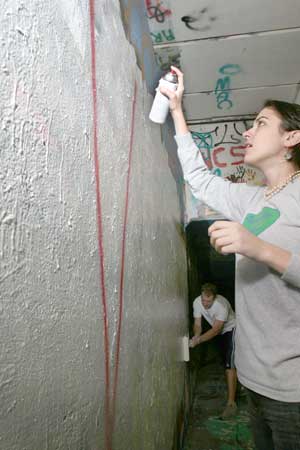
Registering.
Getting to the polls.
Waiting in line.
With local and state elections taking place today, students must decide if the voting process is worth their time.
Jessica Graham, a sophomore in computer science, said she finds local elections just as important as national elections.
“They are representing you locally, they are representing less people,” she said. “It’s almost more important to vote in [local elections].”
Graham also stressed the value in the votes of young people.
“We’re being represented by the people that are being elected,” she said. “We should vote for the people.”
Graham said she plans to vote in Cary, her home city.
Unless students are registered to vote in Wake County, the voting process involves more than walking to the polls. Driving home to vote may not be feasible for students with class conflicts or no available ride.
Absentee ballots may be sent to areas outside of Wake County. However, there were early deadlines for absentees.
For James Germann, a senior in physics, missing the absentee deadline means sitting out the 2006 election.
“[Voting] is very important,” Germann said. “This school runs on tax dollars — pretty much everything runs on tax dollars. [Students] should have a say in what’s going on. It kind of makes me wish I remembered to send in my absentee ballot.”
Germann said he doesn’t think the state and local elections have been a popular topic among students because he hasn’t heard much talk about them.
Ashley Wagner, a freshman in art and design, said students frequently do not regard local elections as important events.
“A lot of [students] are apathetic,” Wagner said. “They think it doesn’t matter. They are in Raleigh and are just here for an education.”
Jordan Myers, a freshman in First Year College, said he thinks every election is important, regardless of the level.
“Every vote counts, they deal with the tax payer’s money,” he said.
Myers said he will be driving to his home in Winston-Salem to vote. He said he is registered Republican and will vote a straight Republican ticket.
Others, like Germann and Wagner, aren’t affiliated with a party.
“I’m more of a moderate,” Wagner said. “I’m liberal and conservative on different things. It depends on the issue.”
These unaffiliated voters face the task of deciding between candidates.
Germann said in the past he used Google to find information on candidates.
Graham said she, too, would utilize the Internet to find non-biased information and research the candidates and their positions on issues.